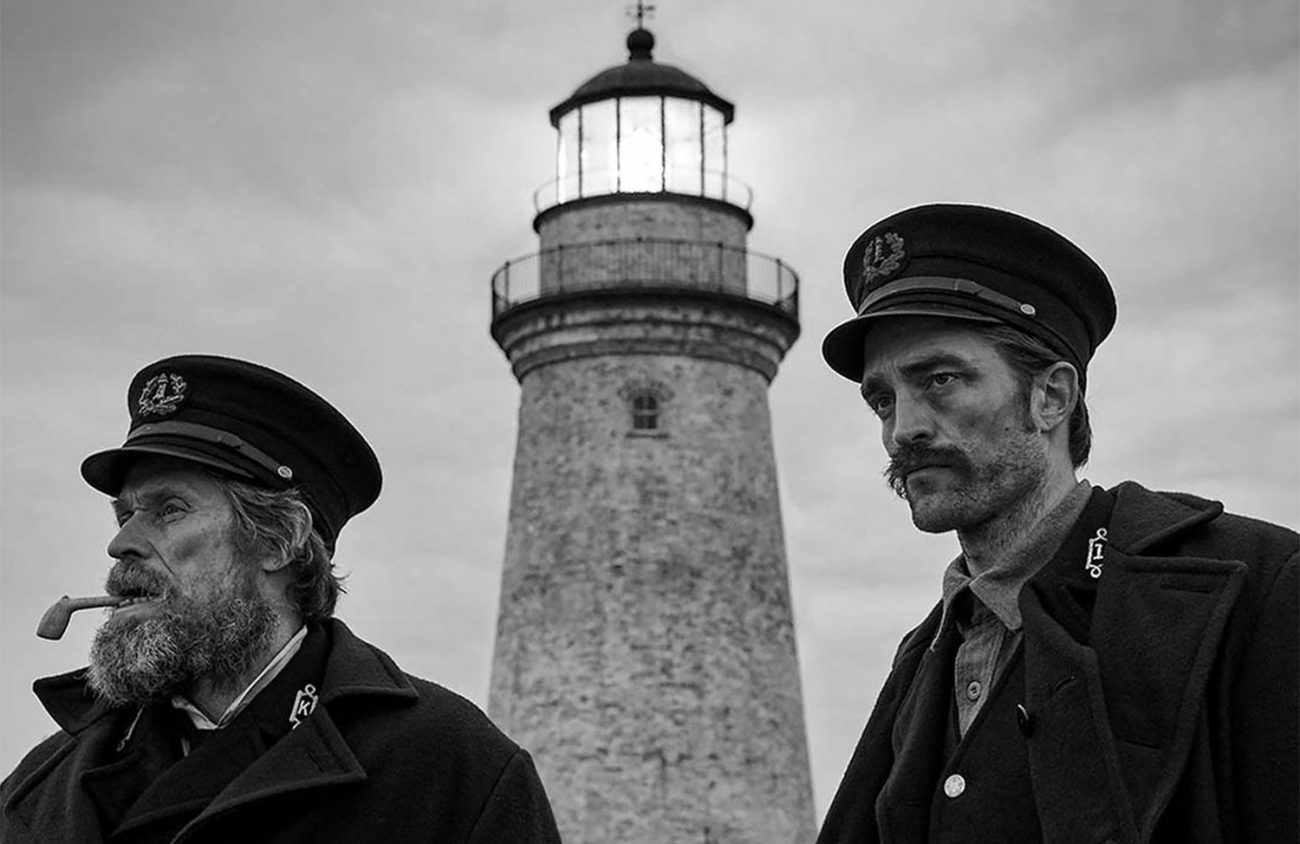Far, far less interested am I in revealing the content of The Lighthouse than in praising the sheer artistic audacity and emotional wallop of this new film by Robert Eggers, whose 2015 debut The Witch might be the best horror film — and one of the best films, period — of the past decade. This new one is just as good, though it’s a beast of different shading, literally and figuratively.
In terms of content, The Lighthouse is a minimalist specimen, a coiled Poe-like fable about isolation and madness. Nothing happens, and everything happens. If I were to describe to you the opening scenes, of two lonely, haunted men arriving on a stark island in 19th-century New England to run a lighthouse, and then explain the final scenes of their utter devastation and ruin, you likely could imagine the general thrust of the story.
And you’d be right — in broadest terms. They go insane. But it is the details of that descent into madness, and the abysmal tunneling of Eggers’ claustrophobic vision — which, at odd moments, can burst into dizzy flights of mythological reckoning — that turns this film into a thing of macabre beauty.
The Lighthouse, then, is essentially a masculine chamber drama for two, and a better two it would be hard to find these days: Willem Dafoe plays Thomas Wake, a cantankerous old salt who travels from remote location to remote location as a “wickie,” a career lighthouse keeper. A master of dark theological undertones, Dafoe’s Wake resembles a seaside prophet torn from the tales of Melville, and it’s a testament to his enormous talent that he keeps this crusty, pontificating isolato just this side of parody.
Dafoe is unimpeachable, but it is the performance by Robert Pattinson that really sustains this film’s fatal tone of psychological and spiritual disintegration. As Ephraim Winslow, a mysterious young loner traveling from job to job, Pattinson channels the classic American anti-hero, an outcast and a castaway whose hazy history is a nightmare from which he cannot awake.
Watching these two fine actors play off each other is one of the movie’s biggest delights — it is a waltz unto death, a malevolently erotic inversion of male bonding that erupts, by turns, into drunken hugs or paranoid assault. Forced together by circumstances, alienated by nature, each holds a mirror to the other, reflecting a cosmic vision that turns from scant hope to outright terror.
Eggers balances the film’s darkly religious and Freudian themes by portraying the visceral realities of two men scrunched together in ramshackle surroundings on an island of rain and rock. For instance, the first bit of dialogue between Dafoe and Pattinson is a fart, and the relentless functions of the body — flatulence, shit, semen, vomit, sweat — are given their due course here, until they become a kind of language unto themselves.
In this regard, The Lighthouse harkens to the work of Samuel Beckett, whose crude fascinations with bodily functions were inseparable from his bleak existential themes. The humor, too, is distinctly Beckett-like, with its comedy of resignation and its carnal slapstick pointing to the mortal despair that seizes upon, and scuttles, our grandest dreams of escape.
The film is shot in sumptuous black-and-white on 35-millimeter stock, and its square format augments the film’s atmosphere of claustrophobia, recalling the middle-period work of the great Swedish director Ingmar Bergman. It also points to Raging Bull by Martin Scorsese, a director whom Eggers resembles more than a little. Both filmmakers are obsessed with the wages of isolation and alienation, and the dangerous effects this has on the human psyche — especially the embattled male psyche, which simultaneously yearns for and repudiates a connection that could signal its only salvation.
“Signal” being the operative word, implying both the God-like light that continuously beams out from the center of The Lighthouse as well as the siren song that calls both men to a release that may or may not be death itself. What better symbol of that psycho-sexual-spiritual salvation than a mermaid (the film’s only other actor, Valeriia Karaman), a spectral figure of desire who, in myth, represents the fulfillment and destruction of all male longing?
But perhaps I’ve already said too much about what washes ashore in The Lighthouse — “Spilled the beans,” as Thomas Wake puts it. A simple tale of infinite complexity, it’s best to set sail toward that blinding beacon yourself. It’s a hell of a trip. (Broadway Metro)
